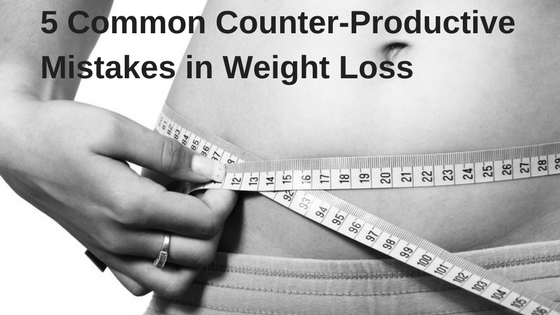Evidence Based Weight Loss – Common Sense and Research Finally Meet
By Cindy Abrami, NASM-Corrective Exercise Specialist, UESCA Running and Multisport Coach and holds a BS in Nutrition
Eat Smart. Eat with your brain. Why? How a person chooses to eat can have profound effects, either good or bad, on their overall health. Food is that tangible piece of our environment we put into our mouths every day. We rightfully worry about germs, viruses, bacteria and pathogens but what about how we eat. What and how you eat can make a person sick too. People often tend to think that food choices aren’t really all that important to the status of health and well-being. While they acknowledge that they really should eat a healthy diet, the motivation to do so is low for most. And when the fire really heats up (such as the doctor insists you make changes or else), instead of thinking in terms of a habit of good food choices and following a sensible whole food based, nutrient balanced diet, folks jump into “quick fix” solutions, which actually can be even more harmful. This is evidenced by the fact that masses follow trendy diet schemes (and there are so very many of them out there), pop millions of supplements and diet pills (of which they know little about), and most importantly, continue to mindlessly eat a highly processed, low nutrient diet and then wonder why chronic health conditions develop and persist. Everyone wants quick, virtually painless and easy to achieve results. Of course we do. But common-sense indicates trying to achieve over-zealous, unrealistic diet and weight-loss goals in a short amount of time, via unhealthy, drastic restrictions can be and often is even more harmful to a person’s health. The repercussion can be lifelong and results are usually unsustainable. Thankfully current research is catching up to common-sense.
Here are a few areas in the arena of food and nutrition, where good studies are being conducted and the results, not surprisingly, make perfect sense. Always use common sense. If it sounds too good to be true it usually is AND can harm you. If you are purposefully altering the body’s natural health and balance mechanisms, you will likely be causing more harm than good. Here’s some information to back it all up.
The Best Macronutrient Combination for Weight Management
The national trend and common rule of thought regarding what percentage of fat, carbohydrate and protein is the healthy amount has been all over the map. Twenty years ago we were all told to eat a low fat/high carbohydrate diet (protein seemed to be the odd man out and was almost dismissed as an optional add-on). Now the trend is high fat/low carbohydrate in one corner, and battling it out in the other corner is high protein/low carbohydrate. But for a moment, forget all that and just ask yourself, what does common-sense suggest. Maybe your answer would be that every person is different and therefore there is no perfect mix of macronutrients that works perfectly for everyone. If that came to your mind, you’d be right. Current research is finally pointing out that the best macronutrient ratio to achieve and maintain ideal weight and health for any given person is individulally different and predicated on several biological and non-biological factors such as:
- Consistency and adherence to an eating pattern
- How satisfied a person feels by certain foods
- Calorie Restriction
- Individual metabolism
- Maintaining lean body mass
- Maintaining metabolic flexibility
“Non-biologic factors that increase adherence and diet acceptability include conformity with cultural norms, scientific novelty and social media. In essence, the “best” diet is the one that a person will resonate with and follow.” (Sacks, F.M., et al. 2009)
Metabolic Flexibility
“Metabolic flexibility is the capacity to shift between glucose and fat oxidation based on substrate availability and activity.” The converse of this is metabolic inflexibility which occurs when the body exhibits impairment in fuel switching and demonstrates energy dysregulation. This condition of metabolic inflexibility has been implicated in obesity, insulin resistance, type 2 diabetes, metabolic syndrome and aging.
An important thing to note in light of recent common dietary trends for rapid weight loss, is that extreme dietary practices which put high emphasis of reliance on one energy substrate in exclusion of the other, has the potential over time to down-regulate metabolic flexibility and therefore adversely affects normal physiological homeostasis (the body’s natural ability to find healthy balance).
The ideal condition of the body is to exhibit cooperation between the two energy sources (carbohydrates and fats) which enable the body to choose, at the cellular level, which energy source is most appropriate for a particular physiological state. The ability to choose the energy source is vital to homeostasis and survival.
Under normal conditions, as exercise/activity increases, the body prefers to use carbohydrates for energy, while in a non-exercise state, fat is the primary energy source.
Burke, L.M. (2015) examined the effect of low carb/high fat diets on metabolism and performance in athletes and concluded the following:
- Long-term exposure to a low carb/high fat diet down-regulates carbohydrate oxidation during exercise. This impairment of glycogen utilization as an exercise fuel represents a decrease in metabolic flexibility.
- Low carb/high fat diets reduce exercise capacity and increases both perceived effort and heart rate.
- Fat-adaptation strategies may impair exercise performance, especially at higher intensities.
- Adaptation to a low carb/high fat diet results in glycogen impairing rather than sparing.
Also of note related to metabolic flexibility is that the Standard American Diet, which remains high in refined, processed carbohydrates and inflammatory fats is a key contributor to metabolic inflexibility.
Bottom Line: Our goal should always be to support our body’s own ability to regulate itself naturally at every level and to therefore focus on keeping everything in proper balance. Extreme restrictions of specific nutrients may provide some type of weight loss result but at an expense to our own health and well-being. Aim for balance and to support the body’s metabolic flexibility. There is a healthier way to achieve your goal. See below!
Best Strategies for Evidence-Based Weight Management (loss and balance)
- Create a modest calorie restriction by changing the balance of diet and activity (increase level of activity while making small changes to overall food intake)
- Eat whole foods, and increase protein consumption
- Match carbohydrate intake to level of exercise and recovery needs.
- Weight train to increase lean body mass and consume adequate protein and carbohydrate meals post-workout for positive recovery.
- Eat a macronutrient ratio suited specifically for you that allows you to eat an appropriate amount and feel satisfied for 3-4 hours and one which you know you will adhere to.
- Skip the trends and listen to your own body and common sense. All anyone needs to do is eat a healthy whole foods based diet in amounts appropriate to their energy expenditure.
While it may sound fairly simple to eat properly and keep your body in a healthy state of being, still most people are unable to fully develop the necessary habits to achieve this. There are many reasons why our dietary habits are not where they need to be and in many cases, a supported nutrition and lifestyle coaching program is helpful. Making small changes over the course of time has been proven to be a highly successful way to lose weight and to fully sustain a healthy weight. Via healthy eating and the resulting loss of weight we can eliminate chronic health conditions and pave the way to a future of well-being, energy, and vibrant living. If you’d like to explore this path and feel supported nutrition and lifestyle coaching would benefit you, please contact me for help.





